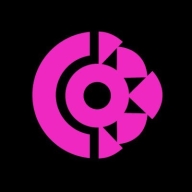


Check Point Remote Access VPN and Claroty Platform are leading solutions competing in the network and remote access security category. Check Point holds the upper hand with its robust integration with existing firewalls and its comprehensive logging capabilities, making it particularly strong for enterprises with extensive Check Point infrastructure needs.
Features: Check Point Remote Access VPN provides robust firewall and SSL VPN functions, seamless Check Point firewall integration, and comprehensive logging through SmartLog. It enhances security with multifactor authentication and compliance modules. Claroty Platform focuses on industrial control systems and OT network security, emphasizing asset and threat management and offering real-time monitoring and vulnerability assessments, tailored for OT needs.
Room for Improvement: Check Point Remote Access VPN requires enhancements in SSL VPN functionalities, deployment processes, and multi-OS support, including Linux. Users report complex configurations and system bugs. Claroty Platform needs improvements in user interface design, detailed attack vector analysis, and better integration with third-party apps and IT networks.
Ease of Deployment and Customer Service: Check Point Remote Access VPN supports various environments like public, private, and hybrid clouds, offering satisfactory technical support with some noted delays. Claroty Platform emphasizes on-premises and hybrid cloud deployments, known for excellent support, although more personalized service is desired.
Pricing and ROI: Check Point Remote Access VPN offers competitive pricing, especially advantageous for Check Point NGFW users, though initial costs are noted as high. It provides substantial ROI by facilitating remote work. Claroty Platform's pricing meets industry standards for OT security solutions, perceived as expensive but justified by features. Both solutions report significant ROI, with Check Point aiding remote work adaptation and Claroty supporting security and operational continuity in OT environments.



Microsoft Intune provides centralized management of mobile devices and applications, ensuring security, compliance, and productivity through integration with Microsoft services like Microsoft 365 and Azure Active Directory.
Organizations use Intune for managing mobile devices and applications, enhancing security and compliance across platforms. With features like single sign-on, conditional access, and zero-touch deployment via Autopilot, it facilitates efficient operations. Intune's scalability, easy enrollment, and capabilities such as remote wipe support diverse device management, offering robust data protection and efficient operation. Despite its features, improvement areas include reporting, compatibility with non-Microsoft devices, and better support for macOS and Linux devices.
What are the key features of Microsoft Intune?
What benefits should users look for in reviews?
In industries such as finance, healthcare, and education, Microsoft Intune is implemented to ensure secure and compliant device management. Companies leverage its capabilities to deploy security policies and manage both corporate-owned and BYOD environments, facilitating a unified approach to data protection and compliance.
Remote secure access VPN is a solution that provides users with remote access to an organization’s network. The host may have VPN client software loaded or use a web-based client. The solution leverages security features like multi-factor authentication, endpoint scanning, and encryption of all data in motion.
Check Point Remote Access VPN provides individuals with protected and efficient access to a company network from anywhere. This strategy fosters collaboration and connectivity between distributed teams and offices.
Features of Check Point Remote Access VPN
Key features of the secure remote access VPN include:
The system enforces endpoint security with endpoint compliance. It monitors and verifies the security status of each endpoint and reports back to the Security Gateway. The gateway, in turn, checks the compliance level and directs the connectivity to the right resources.
Users can deploy the Remote Access VPN in one of three ways:
Remote Access VPN is centrally managed. The centralized console enables management and enforcement of policies with a single log-in.
The Remote Access VPN has a web portal that users can use to connect securely to corporate applications, such as web-based resources, file-sharing, and email. Administrators can customize the web portal to match the brand identity.
Remote Access VPN offers two choices for remote access:
The authentication features include password management, RADIUS challenge/response, CAPI software, and hardware tokens. P12 certificates, and SecurID.
The system establishes a VPN tunnel on demand. It also re-arranges connections when roaming. The tunnel can automatically tear down when the user is on the corporate LAN.
There are several connection features, such as Hotspot detection, office mode IP, split tunneling, and automatic fallback to HTTPS.
Benefits of Check Point Remote Access VPN
One of the key advantages of Remote Access VPN is that it provides remote workers with a secure way to connect to a corporate network from any device, including their personal devices. The data encryption in transit enables them to securely access the resources they need for their tasks.
It also provides IT support and technicians with a faster way to troubleshoot software issues. In the case of a ticket, IT doesn’t need to go to the server location to fix the problem but can troubleshoot it remotely.
A remote secure access VPN is also an affordable alternative for small and medium-sized businesses, without requiring expensive infrastructure.
Reviews from Real Users
A Global IT Network and Security Service Senior Specialist at a manufacturing company who uses Check Point Remote Access VPN says, "I found the MEP feature the most valuable. This has improved users' latency allowing the users to connect to the nearest Azure Check Point VM."
"Organizations that already use the Check Point NGFW Solution do not require any additional hardware, which makes the implementation straightforward and reduces the time to go live," explains Basil D., Senior Manager at a financial services firm.
Manuel B., a Voice and data infrastructure specialist at a tech services company, says that "The IPSec VPN, Mobile Access, and Identity Awareness are three of the blades with which we have been working with since the pandemic. This has given us great mobility, making our network more dynamic."
The Claroty Platform is tailored for monitoring and securing industrial control systems. It offers deep visibility into OT networks, enabling effective anomaly detection and vulnerability assessments. Its user-friendly interface and robust reporting tools facilitate easy management and compliance, enhancing organizational efficiency and cybersecurity posture in industrial environments.
We monitor all Remote Access reviews to prevent fraudulent reviews and keep review quality high. We do not post reviews by company employees or direct competitors. We validate each review for authenticity via cross-reference with LinkedIn, and personal follow-up with the reviewer when necessary.